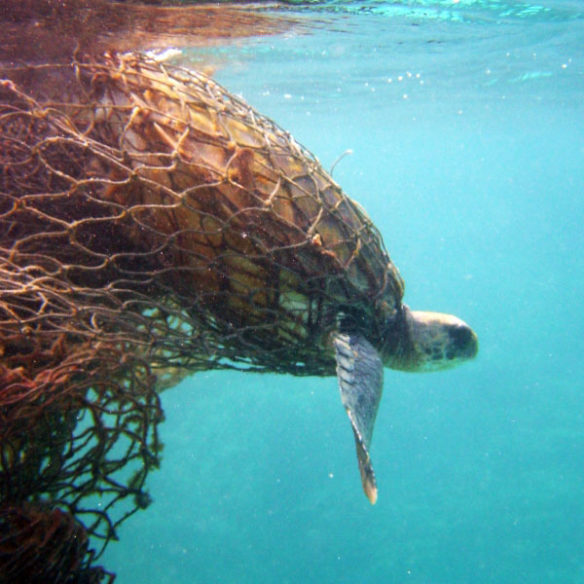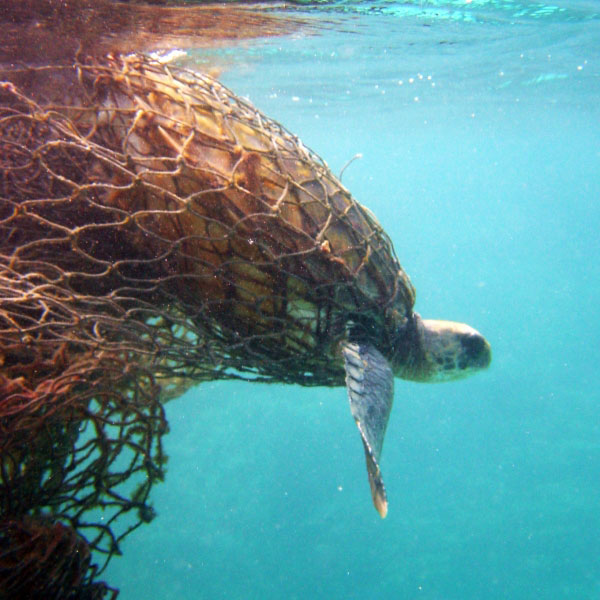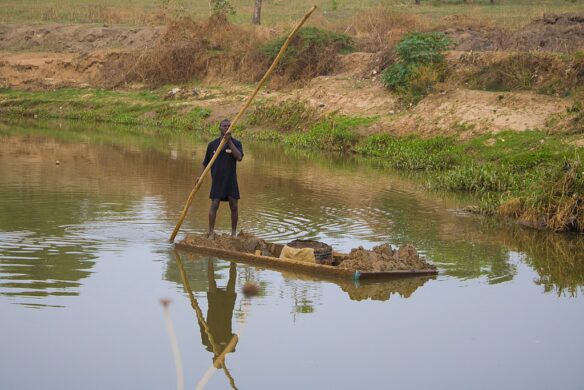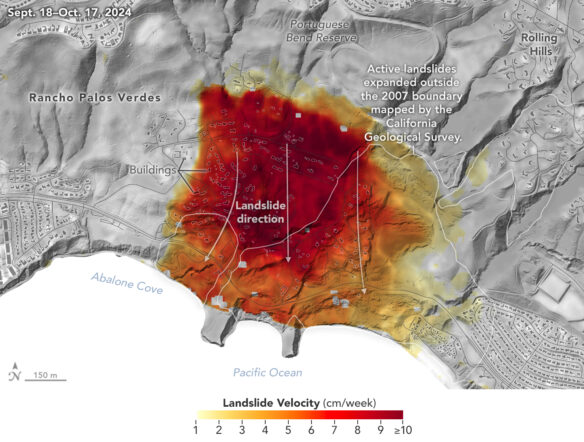
A sea turtle entangled in a derelict net. Photo source: NOAA
“According to NOAA, plastic debris kills an estimated 100,000 marine mammals annually, millions of birds and fishes. The largest pieces of marine plastic debris, miles long discarded fishing nets and lines mostly, take an obvious toll on animals. These derelicts nets, called “ghost nets”, snare and drown thousands of larger sea creatures per year, such as seals, sea lions, dolphins, sea turtles, sharks, dugons, crocodiles, seabirds, crabs, and other creatures. Acting as designed, these nets restrict movement causing starvation, laceration, infection, and, in animals that need to return to the surface to breathe, suffocation.” —Captions: © SAF — Coastal Care.
Excerpts;
About 300 sea turtles have died on Mexico’s southern Pacific coast after they were trapped in an abandoned illegal fishing net…
Read Full Article; CBS News (08-29-2018)
Ghost netting: Image emerges of decomposed turtle wrapped in plastic net; The Independent (08-18-2018)
Pictures taken from the upcoming environmental film Blue, which will be shown at the Ocean Film Festival UK & Ireland Tour, show the horrific effects of plastic pollution and ghost nets on marine life and the world’s oceans…
Marine turtles dying after becoming entangled in plastic rubbish; Science Daily (12-18-2017)
Hundreds of marine turtles die every year after becoming entangled in rubbish in the oceans and on beaches, including plastic ‘six pack’ holders and discarded fishing gear…
Sea Turtles Face Plastic Pollution Peril, University of Exeter (10-09-2015)
A new global review that set out to investigate the hazards of marine plastic pollution has warned that all seven species of marine turtles can ingest or become entangled in the discarded debris that currently litters the oceans, and nesting beaches…
The Plastic Found In a Single Turtle’s Stomach, Independent UK (03-24-2011)
New UN report finds marine debris harming more than 800 species, costing countries millions; United Nations (12-05-2016)
Marine debris is negatively affecting more than 800 animal species and causing serious losses to many countries’ economies, according to a United Nations report launched December 5th, 2016…









